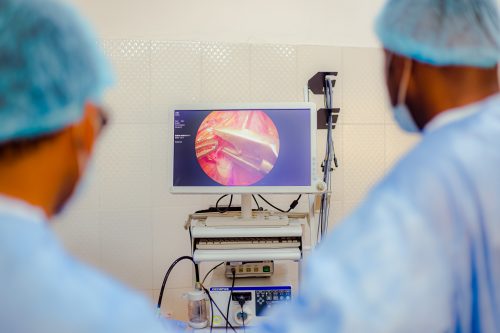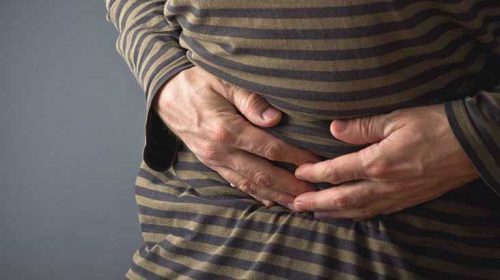Many Nigerians have been searching both online and offline for Hospitals where they perform Prostate Cancer Surgery in Nigeria. So many have given up on that search, believing there are none.
The purpose of this blog post is to inform you that there are hospitals where they perform prostate cancer surgery in Nigeria. Eleos specialist hospital is a leading hospital for keyjole prostate cancer surgery in Nigeria.
In this Blog post we will Educate you on the options available for Prostate surgery.
Options for prostate cancer surgery in Nigeria
You may also want to read PROSTATE CANCER TREATMENT IN NIGERIA
What is a prostatectomy?
A prostatectomy is a surgical procedure where your prostate is removed entirely or in part.
The Prostate is a gland that is a component of the male reproductive system. It encircles the urethra, the tube that allows urine (pee) and semen (ejaculate) to exit your body.
It adds more fluid to your ejaculation. When you ejaculate, fluid (semen) from your prostate enters the urethra. When you orgasm, the muscles around the urethra contract, forcing the semen out of the urethra.
There are two main types of prostatectomy
Simple prostatectomy : There are two parts to your prostate gland: an outer part that forms a capsule and an inner part that grows as you age. The outer part resembles an orange’s peel, while the inner part is similar to an orange’s fruit.
In a simple prostatectomy, the outer part of your prostate is left intact while the inner part is removed through a vertical incision made in your lower abdomen. In the same manner that you might eat an orange, they remove the inner part. The outer part remains intact as they scoop out the inner part.
The procedure can also be carried out laparoscopically. Compared to open surgery, laparoscopic surgery is less invasive. Two to four tiny incisions (less than half an inch) will be made in your abdomen by the surgeon. To view inside your body, they then insert a laparoscope—a thin rod with a camera at the end—into one incision. They remove the inner part of your prostate after inserting surgical instruments into the other incisions.
Radical prostatectomy : Your entire prostate gland is removed by a surgeon during a radical prostatectomy. Usually, they also remove the tissues and fat surrounding your prostate.
These could include lymph nodes and seminal vesicles, which are glands that aid in ejaculation. The vas deferens, the tube that carries semen from your testicles to your urethra, is then cut by the surgeon, who then sutures your urethra back to your bladder.
Your surgeon may choose to perform a radical prostatectomy Robotically, laparoscopically or openly.
In order to remove your prostate during an open radical prostatectomy, the surgeon makes a vertical incision between your pubic bone and belly button.
The surgeon inserts a laparoscope through a series of tiny incisions to view inside your body during a laparoscopic radical prostatectomy. The other incisions are used to insert surgical instruments.
A robotic laparoscopic radical prostatectomy might be an option for you. This surgery has robotic assistance. A robot’s arms are “piloted” by your surgeon, enabling them to move much more carefully in difficult-to-reach places inside your body.
Less invasive than an open prostatectomy are robotic radical prostatectomy and laparoscopic radical prostatectomy.
A single port radical prostatectomy might be an option for certain individuals. The instruments for this kind of robot-assisted radical prostatectomy enter the body through a single, tiny incision in the lower abdomen.
Both Robotic and Laparoscopic Radical Prostatectomies are known as keyhole surgeries.
These keyhole surgeries are less invasive, promotes a quicker recovery, and leaves fewer scars. However, as this is a more recent procedure, few hospitals may offer it including our facility.
Although Prostate Cancer Surgery in Nigeria has advanced to the point that it is done at Eleos Specialist hospital and a few other hospitals.
Open prostatectomy
During an open prostatectomy, the urologist will carefully make a vertical incision between your belly button and pubic bone (suprapubic) using a sharp, sterile knife (scalpel).
The urologist might occasionally decide to make the incision in the skin between your scrotum and anus (perineum). However, this approach isn’t as common.
Typically, the incision measures six to twelve inches. The urologist can see your prostate and surrounding tissues clearly through a large incision.
They will use tiny metal staples or stitches (sutures) to close the wound. In order to extract blood or fluid from inside your body, they might also fasten a tiny silicone tube, also known as a surgical drain.
Before a healthcare professional removes them, they are usually in place for a few days following surgery. Typically, removing a surgical drain is painless and doesn’t call for additional painkillers or anesthesia.
Keyhole Surgery( Either laparoscopic or robotic)
When performing a robotic prostatectomy, the urologist will either make multiple tiny incisions (multi-port prostatectomy) or one small incision (single port prostatectomy) with a scalpel. The incisions are no more than 3/4 of an inch in size. These tiny incisions will be used to insert a laparoscope and robotic surgical tools.
The seminal vesicles and prostate gland are then extracted from the surrounding tissues by the urologist. After that, they will use tiny sutures to reattach your urethra to your bladder. In order to check for cancer, the urologist might also remove your lymph nodes.
Your incisions will be closed by a medical professional using staples or stitches after the procedure is finished. For robotic surgery, sutures will be used. Additionally, they might fasten a surgical drain at one of your wounds.
Both the open surgery and the keyhole surgery achieves the same aim of complete removal of the prostate. The advantage of the keyhole surgery over the open surgery stems from the fact that the surgeon will go through tiny holes on the tommy to reach your prostate rather than the long cuts of open surgery. This makes for lesser discomfort following surgery, shorter hospital stay and faster return to work as well as the presence of little or no scars.
WHO NEEDS A RADICAL PROSTATECTOMY
Nigerians that have been searching for information about Prostate Cancer Surgery in Nigeria have been curious as to who needs a radical prostatectomy. Below are the types of patience;
- If it is discovered you have a prostate cancer that has not spread outside your prostate. In which case removing the prostate will cure you of the prostate cancer ie stage 1 or 2 prostate cancer
- If it is discovered you have a prostate cancer that has spread just outside the prostate to the immediate surrounding structures ie the prostate cancer has not spread to distant sites. This is stage 3 prostate cancer.
Patients with late stage 3 prostate cancer or stage 4 prostate cancer will not benefit from any of these procedures. They are rather placed on treatments to possibly reduce the advancement of the prostate cancer. One of such treatments which is surgically oriented is the removal of the two testes.
THE SURGERY
The surgery is done under combined Spinal and Epidural anesthesia or General Anesthesia.

PROBLEMS THAT MAY ARISE FOLLOWING THE CURATIVE SURGERY
1. Infection
Antibiotics are usually administered to avoid this. Symptoms include fever, shivering fluidy discharge from the surgical site. Usually adjustment in antibiotics takes care of this.
2. Difficulty getting an erection
This usually resolves after a period of time following surgery. Most patients will need to be supported with drugs in the initial period following surgery. Very few others will require other interventions to take care of this.
3. Leakage of Urine
Most patients will have leakage of urine (Incontinence) following surgery. This resolves over a short period of time in most patients especially when the patient dedicatedly engages in Pelvic Floor Muscle Exercises.
Eleos Specialist Hospital now performs Laparoscopic Radical Prostatectomy, also known as Keyhole Surgery for Prostate Cancer.
If you want to get more information on Prostate Cancer Surgery in Nigeria you can reach us through the number below or you can’t get more information about us on our contact page
Contacts 08033103165; 08163666022


